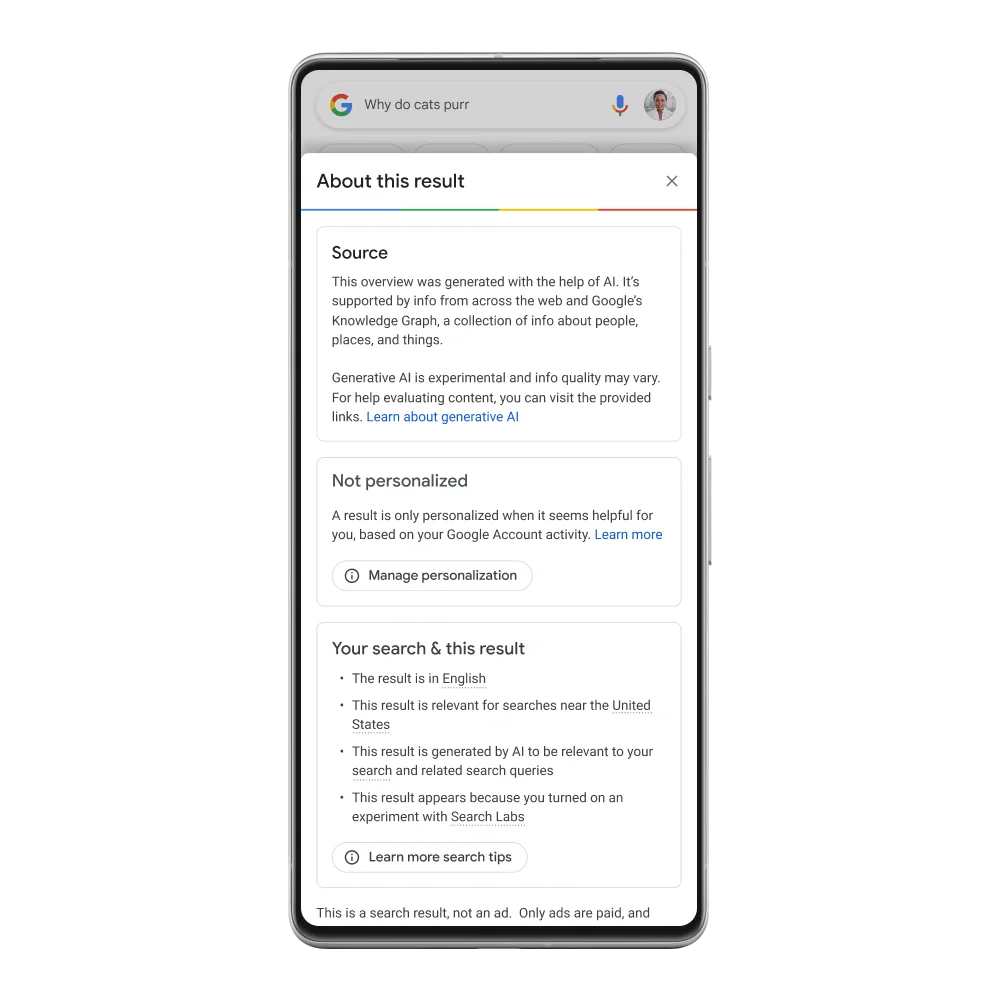Google has announced plans to extend its new generative AI-based search feature, Search Generative Experience (SGE), to teenagers aged 13-17 in the United States.
The move follows the successful launch of Search Labs earlier this year and the feedback received from users aged 18-24.
The younger demographic finds SGE particularly valuable, Google says, as it allows them to interact with the search engine more naturally, ask follow-up questions, and mimic the flow of a human discussion.
Google is extending these capabilities to teens, believing SGE can assist them in exploring topics of interest and answering questions that traditional search engines struggle with.
Balancing Opportunities and Safety
As SGE is rolled out to a younger audience, Google emphasizes the importance of striking the right balance between opportunities and safety concerns.
To do this, Google has researched and consulted experts in teen development and implemented appropriate safeguards.
Addressing safety concerns, SGE has stricter safeguards for younger users, including stronger filters to prevent inappropriate content related to illegal substances, bullying, and other issues.
Additionally, Google published a new “AI Literacy Guide” to educate teens and parents about how the technology works.
This guide is available as part of the onboarding process for the new features in Search Labs and can be found in the Search Help Center.
Google stresses that Search Labs’ experiences are experimental and in the early stages. The company will continue gathering feedback to improve the technology.
‘About This Result’ In SGE
To ensure users can evaluate the reliability of information and sources found in SGE, Google is integrating the “About this result” feature found in traditional search results.
“About this result” is designed to give searchers a deeper understanding of how Google’s AI generated the search engine results pages (SERPs).
The feature highlights webpages and content that back up information in Google’s AI-powered summaries, allowing searchers to verify facts and sources.
 Screenshot from: blog.google/products/search/google-generative-ai-search-expansion/, September 2023.
Screenshot from: blog.google/products/search/google-generative-ai-search-expansion/, September 2023.Looking Ahead
The launch of SGE to a broader audience comes as technology companies face growing scrutiny around the societal impacts of large language models.
While promising to enhance search, generative AI raises concerns about the potential to spread misinformation and bias.
Google acknowledges these concerns and is committed to continuous improvement, using rigorous testing and evaluation to ensure a high-quality, helpful user experience.
This technology is in the early stages, so user feedback is essential for future updates.
Featured Image: Koshiro K/Shutterstock
 seolounge
seolounge